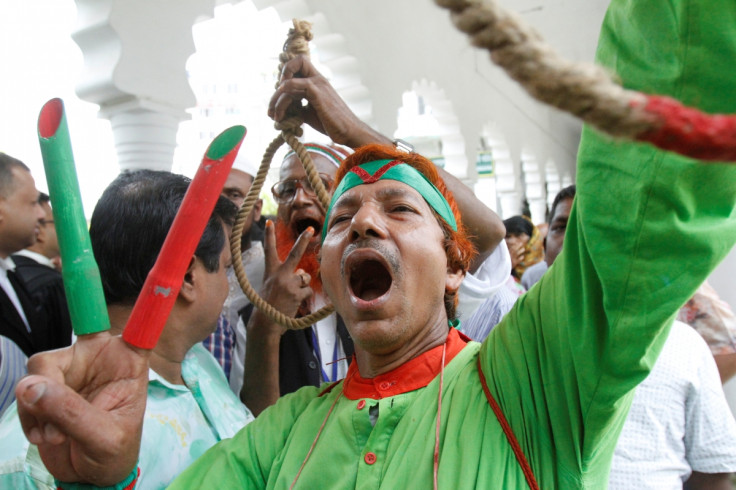Bangladesh: Top Muslim leader to be hanged for war crimes after losing final appeal

Leader of the Jamaat-e-Islami, Motiur Rahman Nizami, has lost a final appeal against his death penalty for committing war crimes. The top Bangladeshi Muslim leader can be hanged any time now, as the Supreme Court upheld his sentence for genocide, murder, rape and orchestrating the killings of intellectuals during the country's independence war with Pakistan in 1971.
A tribunal set up by Prime Minister Sheikh Hasina charged Nizami with war crimes and awarded capital punishment in October 2014. He has been in jail since 2010
Security was beefed up ahead of the verdict around the court complex. Hearing his review of the previous Supreme Court judgment, a four-member bench simple rejected his appeal.
After the top court dismissed Nizami's review, attorney general Mahbubey Alam told AFP: "We're satisfied. Now there is no bar to execute him unless he seeks clemency from the president and the president pardons him."
Soon after the verdict, the Jamaat issued a statement calling Nizami "a victim of state sponsored conspiracy" and called for day-long strike on 8 May.
"The government has taken a plan to kill Nizami in the name of trial of crimes against humanity as part of its political vengeance," according to the New Indian Express.
Jamaat took the Pakistan's side during the 1971 Liberation War, when Bangladesh was still a part of Pakistan and was called East Pakistan.
The 73-year-old's defence lawyer said that Nizami will not seek clemency. That means once the jail authorities procure a copy of the verdict, his execution could happen anytime. Criticising the tribunal's verdict, a non-profit organisation based in Italy has called the proceedings "a weapon of politically influenced revenge whose real aim is to target the political oppositions". However, the government has denied the accusations, Reuters reported.
Hasina's government has been accused of targeting her political opponents since the war crime tribunal was formed and four opposition politicians have been executed since late 2013. Many people took to the streets of capital Dhaka and Chittagong to celebrate the news of Nizami's appeal being rejected.
© Copyright IBTimes 2024. All rights reserved.






